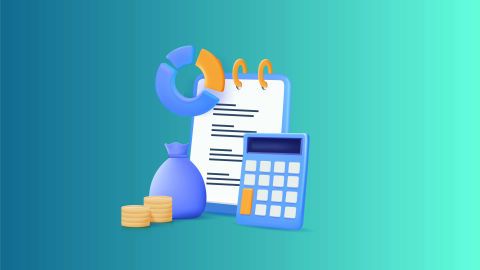Why is home valuation important?
Home valuation is critical for many reasons. First and foremost, it helps determine the accurate price of a property. Whether you're buying or selling, you want to ensure that the price reflects the true market value. Valuation also plays a vital role when securing financing. Financial institutions, such as banks, assess the home’s value to decide how much money to lend.For homeowners, knowing the value of your property can help you make smart financial decisions. For instance, if you plan to sell your home, a valuation ensures that you list it at the right price.
Moreover, home valuation is also important for tax purposes and insurance coverage, as it gives authorities and insurance companies a benchmark to calculate property tax and adequate coverage amounts.
Factors affecting home valuation
Several factors influence how much your home is worth. Here are some key elements:Location: A property in a prime location, such as near schools, hospitals, or public transport, tends to be valued higher.
Size: Larger properties, with more rooms or land area, are typically valued higher.
Condition: Homes in good condition, with modern amenities and well-maintained interiors, generally have a higher value.
Age of Property: Newer homes are often valued higher due to fewer maintenance requirements and the availability of modern features.
Market Trends: The local real estate market significantly impacts home valuation. If demand is high, property values increase.
Comparable Sales (Comps): Homes that have sold recently in the area play a big role in determining the value of your property.
Upgrades and Renovations: Recent home improvements such as a new kitchen, updated bathroom, or landscaped garden can increase the home’s value.
Common methods of home valuation
There are several methods used to value a home, each offering a different approach. Let us explore the most common ones:1.Sales comparison approach
This is one of the most commonly used methods, particularly for residential properties. It compares the home in question with similar properties (comps) that have recently been sold in the same neighbourhood. Adjustments are made for differences in size, condition, or features, which help in determining the value.
2.Cost approach
The cost approach calculates how much it would cost to rebuild the property from scratch, subtracting depreciation for wear and tear. This method is more commonly used for new properties or homes with unique features.
3.Income approach
The income approach is typically used for investment properties like rental homes or commercial buildings. It calculates the potential income the property can generate, often based on current rent prices and potential expenses, to estimate its value.
In all these methods, an expert appraiser usually conducts the valuation process, ensuring that market data and accurate comparisons are used.
Property valuation is closely linked with home valuation. While home valuation specifically refers to residential properties, property valuation includes all types of properties, such as commercial, industrial, and land. Both types rely on similar methods and factors, with a focus on the location, condition, and current market conditions.
How to calculate home valuation?
Calculating home valuation involves gathering data and applying the appropriate method of valuation. Here are the general steps:Gathering property details: Start by collecting data on the home such as square footage, number of rooms, and condition.
Assessing the market: Study the local real estate market to understand how similar properties are performing in the area.
Comparing properties: Use the sales comparison approach to compare your home with similar ones recently sold in the neighbourhood.
Adjusting for differences: Adjust for differences between your home and the comparable homes, such as upgrades, amenities, or size.
Applying the valuation method: Based on the comparisons, apply the most suitable valuation method, such as the cost approach or income approach.
Seeking professional help: While you can estimate the value yourself, professional appraisers use industry knowledge, tools, and resources to provide a more accurate figure.
A thorough home valuation often requires the expertise of a real estate professional, as they can assess the market and property conditions better.
Home valuation for loan approval
When you apply for a loan, especially aLoan Against Property, the lender needs to ensure that the home is worth enough to cover the loan amount. This is where home valuation plays a critical role. Lenders use professional appraisers to evaluate the home’s market value. The lender will then base their loan offer on this valuation.Home valuations for loan approval can involve the following:
Loan-to-Value Ratio (LTV): This ratio determines how much you can borrow against the value of the property. The higher the LTV, the more risky the loan is for the lender.
Property type: The type of home, whether residential, commercial, or industrial, can impact the valuation process and the loan terms.
Documentation: Along with the valuation, the lender will also require documentation such as property papers, tax records, and proof of ownership.
Having a higher property value can lead to a higher loan approval amount. However, it is important to ensure the property is accurately valued to avoid overborrowing or under borrowing.
Role of home valuation in real estate investment
Home valuation plays a pivotal role in real estate investment. Investors use valuation to determine whether a property is worth investing in. By assessing the potential return on investment (ROI) and understanding the local market conditions, investors can make informed decisions.Key factors include:
Market conditions: An understanding of current market trends allows investors to assess whether it’s the right time to buy.
Property appreciation: Investors often look for properties that will appreciate in value over time. A solid home valuation helps predict how the property may perform in the future.
Rental income: For those interested in rental properties, a good home valuation will show how much rental income can be expected.
Real estate investors use these valuations to ensure they make profitable and low-risk investments.
How property size and location impact valuation?
Size: Larger properties tend to have higher valuations because they offer more living space and flexibility for future expansion or use.Location: A property in a well-established or high-demand area will typically have a higher valuation. Proximity to schools, shopping centres, parks, and public transport boosts a home’s value.
These two factors are usually among the most significant influencers of a home’s overall worth.
Understanding the home valuation report
A home valuation report is the final document that appraisers provide after assessing a property. It includes:Property details: The address, size, age, and condition of the home.
Market analysis: An evaluation of comparable properties and the market trends affecting the property’s value.
Valuation conclusion: The final estimate of the home’s value based on all factors.
Understanding the valuation report is crucial, especially for buyers, sellers, and those applying for aLoan Against Property. It ensures that everyone involved in the transaction has a clear understanding of the property's worth.
How to prepare your home for a higher valuation?
Here are some tips to increase your home’s valuation:Repairs and maintenance: Fix any leaks, cracks, or other issues that may lower the value.
Clean and declutter: A clean, well-organized home gives a better impression and may lead to a higher valuation.
Upgrade key areas: Renovate kitchens, bathrooms, or exterior features to add value.
Curb appeal: First impressions matter, so maintain the exterior of the house, including the lawn and garden.




